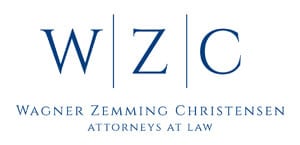Employers and Social Host Liability

Employers and Social Host Liability
When employers sponsor after-work activities that include serving alcohol, can the employer be held liable for any injuries caused by employees who consumed the alcoholic beverages? In the majority of jurisdictions, the answer is no. Employers are not liable for the torts committed by employees who become intoxicated at work-sponsored social events. Courts in these jurisdictions have found that the consumption of alcohol and not the provision of alcohol causes the injury, thus making the employee liable.
Some jurisdictions, however, will permit those injured by the actions of an employee who became intoxicated at a work social function to bring a legal action against an employer if:
- The employer knew or should have known the employee was intoxicated
- The employer allowed the employee to continue to be served alcohol
- The employer knew the employee intended to drive
In these cases, the court may find that the employer had a duty to protect innocent third parties from the unreasonable risk that a drunk driver poses, and that the furnishing of alcohol to an intoxicated person — and not the consumption of alcohol — is the proximate cause of the third party’s injuries.
This is akin to likening the employer to a social host. Generally, only those that sell alcohol for a profit (like bars and restaurants) have a duty of care not to provide alcohol to intoxicated persons. Some states, however, have enacted social host liability statutes that impose this same duty of care on those who furnish alcohol during social events to their guests.
Absent a statute, in jurisdictions that recognize social host liability, social hosts only have a duty to prevent intoxicated guests from driving if they have control over the liquor supply. If the guests bring their own alcohol with them, the host does not have a duty to prevent them from becoming intoxicated and leaving the party.
Other states may allow third parties injured by employees who became intoxicated at an employer’s social event to bring a cause of action under a dram shop act or civil damages act. Traditionally, dram shop acts only apply to licensed alcohol vendors, allowing families to bring claims against bars and others for continuing to serve a visibly intoxicated person whom they knew or should have known was going to drive. Civil damages acts, on the other hand, usually are written more broadly to encompass not only those selling alcohol for profit, but also those who merely furnish alcoholic beverages to others.
In some instances, employers may be held vicariously liable for the injuries caused by drunk employees if the court finds the employee was acting within the scope of employment when the injury occurred. However, some courts have refused to find employers vicariously liable in these situations unless business was conducted during the function where alcohol was served and the employee’s attendance was mandatory.
To learn more about your particular jurisdiction’s laws concerning employer liability for injuries caused by employees, contact an experienced employment law attorney.
How Employment Law Attorneys Can Help Employers
To read and print out a copy of the checklist, please follow link below.
How Employment Law Attorneys Can Help Employers
You can download a free copy of Adobe Acrobat Reader here
